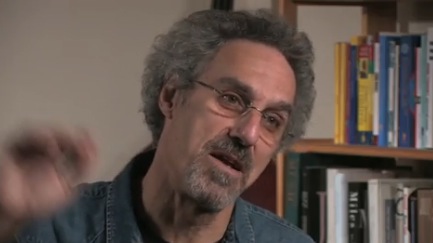All Categories

0071
Urmee Mehta Mankar – Swadhaar – Micro Finance – Provided by the Skoll Foundation and Social Edge

0388
Austerity and the Destruction of Democracy – provided by theRealNews.com; Rob Johnson: Austerity policies in Europe threaten a deformation of democracy and the rise of ultra-nationalist forces

0146
 Credit Crunch-Provided by Bremner, Bird and Fortune, Vera Productions; John Bird and John Fortune brilliantly and accurately describe the mindset behind the credit crunch with this satirical interview of George Parr. {@7 min}
Credit Crunch-Provided by Bremner, Bird and Fortune, Vera Productions; John Bird and John Fortune brilliantly and accurately describe the mindset behind the credit crunch with this satirical interview of George Parr. {@7 min}

0023
Getting From Here To There – Reviews what can be done today to forge new paths to human development and ecological sustainability. (~ 27 minutes). From Ethical Markets miniseries on International Financial Reform, featuring John Perkins, Kenneth Rogoff and Sakiko Fukudu-Parr.
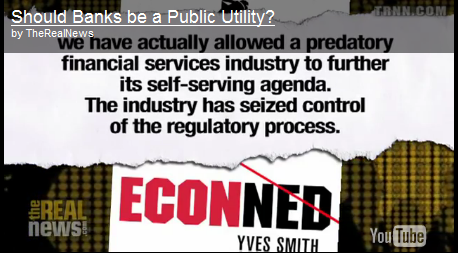
0389
Should Banks Be A Public Utility? – provided by TheRealNews.com; Yves Smith: Finance sector controls the regulatory process – there needs to be a publicly controlled alternative to the private banking system

0337
Story of Electronics — provided by StoryofStuff.org; Annie Leonard and the Story of Stuff team do it again – bring us an insightful view of the true costs of consumerism.

0145
 Subprime Crisis-Provided by Bremner, Bird and Fortune, Vera Productions; John Bird and John Fortune brilliantly and accurately describe the mindset of the investment banking community in this satirical interview. {@9 min}
Subprime Crisis-Provided by Bremner, Bird and Fortune, Vera Productions; John Bird and John Fortune brilliantly and accurately describe the mindset of the investment banking community in this satirical interview. {@9 min}

0022
Visions For A Better Future – Discusses the many researchers and think tanks offering alternative paths to more just and humane forms of development.(~ 27 minutes) . From Ethical Markets miniseries on International Financial Reform, featuring John Perkins, Kenneth Rogoff and Sakiko Fukudu-Parr.

0021
Reforming The IMF – The IMF is in crisis – few countries want its loans and the onerous restrictions and “conditionalities” imposed. The future of the IMF will require massive reform. (~ 27 minutes) . From Ethical Markets miniseries on International Financial Reform, featuring John Perkins, Kenneth Rogoff and Sakiko Fukudu-Parr.

0039
Minds for History – A conference in May, 1989, discussing humanity’s future with Nobelists Murray Gell-Mann and Czeslaw Milosz, Richard Falk, Harvey Cox, Hazel Henderson and jazz musician Billy Taylor.

0020
Reforming The World Bank – Examines the structure and workings of the World Bank and why it is under attack from all quarters. Reforms and proposed actions. (~ 27 minutes) . From Ethical Markets miniseries on International Financial Reform, featuring John Perkins, Kenneth Rogoff and Sakiko Fukudu-Parr.
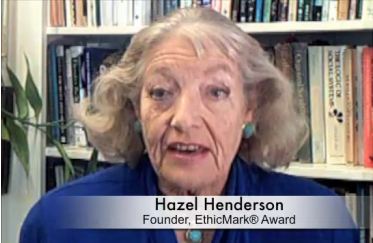
0338

0390
Bart Chilton — provided by theREALnews network; CFTC Commissioner Bart Chilton says: “A Hair Trigger Away from Economic Calamity.” Wall Street lobbyists trying to slow down trading regulations and defund Commission.

0019
Why Reform Global Finance? – Financial crises, booms, busts and bubbles signal the need to overhaul the global financial system. What kind of reforms can re-direct economic development toward equity and sustainability? (~ 27 minutes) . From Ethical Markets miniseries on International Financial Reform, featuring John Perkins, Kenneth Rogoff and Sakiko Fukudu-Parr.
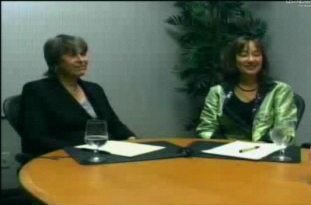
0138
 Why does the world need women in business? – May 8, 2008, Kemila Velan of Ethical Markets Media, Diane Bowers of the Florida Angel Investment Network and Susan Preston of CalCEF Energy Fund discuss women’s roles in shaping the future economy in light of the current struggles and trends we are facing. (30 min)
Why does the world need women in business? – May 8, 2008, Kemila Velan of Ethical Markets Media, Diane Bowers of the Florida Angel Investment Network and Susan Preston of CalCEF Energy Fund discuss women’s roles in shaping the future economy in light of the current struggles and trends we are facing. (30 min)
Classic Talk – Shows and videos which have stood the test of time.

0155
 Van Jones Against Ethanol July 2008 – provided by IPB; Van Jones of Green For All, building an inclusive green economy strong enough to lift people out of poverty, explains why ethanol technologies are not good for people, communities or the environment. (4 min)
Van Jones Against Ethanol July 2008 – provided by IPB; Van Jones of Green For All, building an inclusive green economy strong enough to lift people out of poverty, explains why ethanol technologies are not good for people, communities or the environment. (4 min)

0131
 Janine Benyus – 12 sustainable design ideas from nature Provided by TED.com; In this inspiring talk about recent developments in biomimicry, Janine Benyus provides heartening examples of ways in which nature is already influencing the products and systems we build. (24 mins)
Janine Benyus – 12 sustainable design ideas from nature Provided by TED.com; In this inspiring talk about recent developments in biomimicry, Janine Benyus provides heartening examples of ways in which nature is already influencing the products and systems we build. (24 mins)
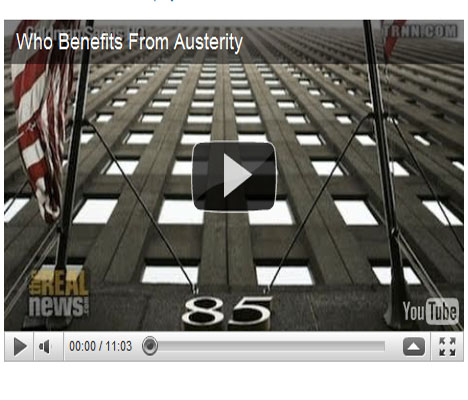
0341
Who Benefits From Austerity — provided by TheRealNews.com
What Does Wall St Want Out of Austerity and What Benefits Does it Gain From a Small Government? Answered by Professor James Crotty, a macro economist from Carnegie-Mellon University.
RETHINKING GLOBALIZATION a series produced by Hazel Henderson with guests Dee Hock, Oscar Motomura and Don Beck

0150
Texas Wind Power – provided by National Public Radio; Ex-farmer Cliff Ethridge is giving new life to a dying town through the power of wind. (3.5 min)

406 – Promo – “Recognizing the Power and Purpose of Non-profits”
“Recognizing the Power and Purpose of Non-profits” – Interview with Linda Crompton – Principal, Crompton Consulting, LLC; former president of BoardSource (the national center for non-profit boards); Ethical Markets Transforming Finance Series 2013
REFORMING THE ECONOMY – These and dozens more videos picked by Hazel Henderson and the Ethical Markets team which explore how the US and global economy have faltered and offering creative solutions moving forward.

0140
Solar Power in Spain – This example of solar power in Spain uses an array of mirrors to provide clean energy on a large scale. (2.5 min)

407 – Promo – “Beyond Economics to Earth Systems Science” – Michael Grunwald
“Beyond Economics to Earth Systems Science” – Interview with Michael Grunwald – TIME, Time.com, Senior National Correspondent; author, The New New Deal (2012); part one; Ethical Markets Transforming Finance Series 2013

0112
 Know Your Lawn – Provided by Sundance Channel, this editorial by Simran Sethi, host of the Ethical Markets TV series, explains the environmental damage caused by lawn maintenance and offers alternatives. (1 ½ min)
Know Your Lawn – Provided by Sundance Channel, this editorial by Simran Sethi, host of the Ethical Markets TV series, explains the environmental damage caused by lawn maintenance and offers alternatives. (1 ½ min)
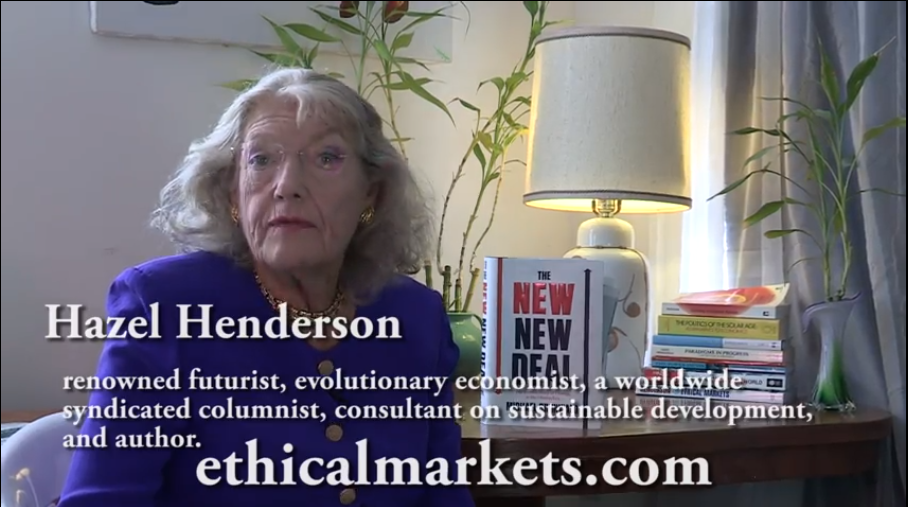
408 – Promo – “Transition to the Green Economy” – Michael Grunwald
“Transition to the Green Economy” – Interview with Michael Grunwald – TIME, Time.com, Senior National Correspondent; author, The New New Deal (2012); part two; Ethical Markets Transforming Finance Series 2013

0111
 Greening Your Game – Provided by Sundance Channel, this editorial by Simran Sethi, host of the Ethical Markets TV series, connects sports and the environment, particularly how sustainable management can make even golf sensitive to the environment. (1 ½ min)
Greening Your Game – Provided by Sundance Channel, this editorial by Simran Sethi, host of the Ethical Markets TV series, connects sports and the environment, particularly how sustainable management can make even golf sensitive to the environment. (1 ½ min)

0110

Five Disaster Waiting to Happen – Provided by The Green on Sundance Channel, Simran Sethi, host of the Ethical Markets TV series, addresses the peril of rising oceans on major urban centers. (2 ½ min)

410 – “Recognizing the Power and Purpose of Non-profits” – Interview with Linda Crompton
“Recognizing the Power and Purpose of Non-profits” – Interview with Linda Crompton – Principal, Crompton Consulting, LLC; former president of BoardSource (the national center for non-profit boards); Ethical Markets Transforming Finance Series 2013

0109

Eco-Friendly Products – Provided by Sundance Channel, this editorial by Simran Sethi, host of the Ethical Markets TV series, offers alternatives to the “paper or plastic” conundrum – how about neither? (1 min)
 Worth Quoting TV seriesCommentaries and dialogues, many with Hazel Henderson, which stand the test of time, including a rare interview with Aurelio Peccei, late founder of the Club of Rome; also Barbara Marx Hubbard, Fritjof Capra, Frank Bracho, James Robertson, Frederick Hayek and others.
Worth Quoting TV seriesCommentaries and dialogues, many with Hazel Henderson, which stand the test of time, including a rare interview with Aurelio Peccei, late founder of the Club of Rome; also Barbara Marx Hubbard, Fritjof Capra, Frank Bracho, James Robertson, Frederick Hayek and others.

0188
Utility Scale Solar – provided by renewableenergyworld.com; Adam Browning of Vote Solar discusses what California utilities are doing to push forward with solar energy at Solar Power International 08. (14 min)

0108

A Crude Awakening – Provided by The Green on Sundance Channel, Simran Sethi, host of the Ethical Markets TV series, addresses the US dependence on oil from drivng our cars to filling our water bottles. (3 min)
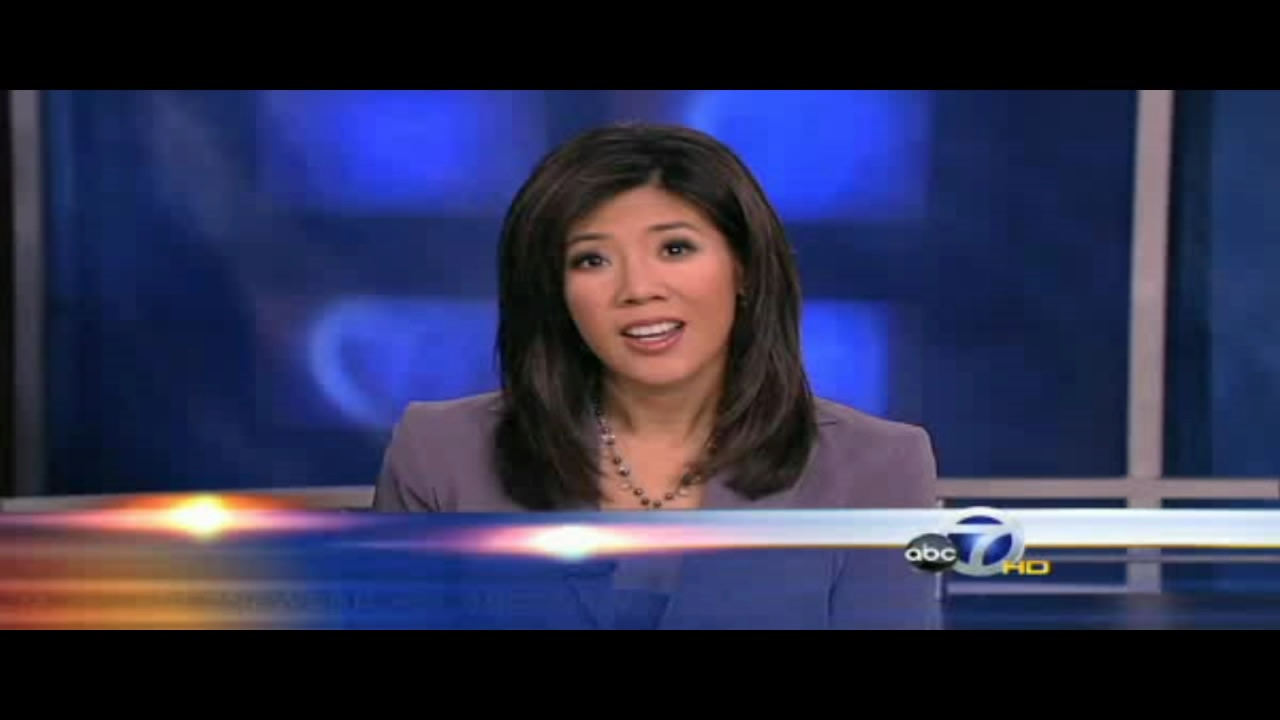

0107

Car Culture – Provided by Sundance Channel, this editorial by Simran Sethi, host of the Ethical Markets TV series, encourages smart growth built around communities, not cars. (1 ½ min)
 Rethinking Globalization – a series produced by Hazel Henderson with guests Dee Hock , Oscar Motomura and Don Beck
Rethinking Globalization – a series produced by Hazel Henderson with guests Dee Hock , Oscar Motomura and Don Beck

0137
Al Gore: Clean Energy for Brazil – provided by Mercado Ético, Ethical Markets affiliate in Brazil; This episode of the Mercado Ético TV series features an exclusive interview for Brazil with Al Gore speaking to the global energy challenge and how ethical markets must play a role in meeting the challenge. (~20 min)
 Power of Yin – This interactive, online TV show, based on the book by Hazel Henderson, Barbara Marx Hubbard and Jean Houston, accompanies the Power of Yin Newsletter. Watch the first episode here.
Power of Yin – This interactive, online TV show, based on the book by Hazel Henderson, Barbara Marx Hubbard and Jean Houston, accompanies the Power of Yin Newsletter. Watch the first episode here.
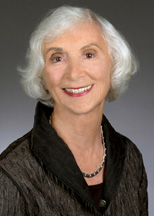
0117
State of the Future – Reviews the 15 global challenges for humanity to make the 21st century more equitable and environmentally sustainable while incorporating women as equal partners for greater productivity. (27 minutes)
 Making a Difference – Stories of people with big ideas set to change the world in major ways, drawn from sources such as TED.com, China’s Green Beat and the Schumacher Society.
Making a Difference – Stories of people with big ideas set to change the world in major ways, drawn from sources such as TED.com, China’s Green Beat and the Schumacher Society.
 Insights from the Green – Featuring Simran Sethi, environmental journalist and host of the Ethical Markets TV series, these videos provided by Sundance Channel and TheGreenOnline address ways in which we can be socially and environmentally responsible.
Insights from the Green – Featuring Simran Sethi, environmental journalist and host of the Ethical Markets TV series, these videos provided by Sundance Channel and TheGreenOnline address ways in which we can be socially and environmentally responsible.

0018
Socialy Responsible Investing – Covers the worldwide boom in ethical investing ($2.3 trillion in the USA alone). Social and environmental costs (pollution, outsourcing, stagnate wages) of maximizing profits to shareholders has given way to concerns for all stakeholders and new “triple bottom line” accounting for people, planet and profits. (~ 27 minutes)
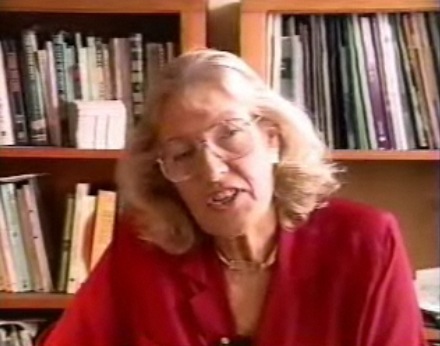 GLOBAL CITIZENS : CREATIVE SOLUTIONS – Socially responsible voices of individuals and NGOs, like the Skoll Foundation, the UN and IONS, sharing their vision for a sustainable future; including perspectives like Vicki Robin’s, Jane Goodall’s and Van Jones’; solutions from young people around the world; stories of people with big ideas set to change the world in major ways, drawn from sources such as TED.com, China’s Green Beat and the Schumacher Society.
GLOBAL CITIZENS : CREATIVE SOLUTIONS – Socially responsible voices of individuals and NGOs, like the Skoll Foundation, the UN and IONS, sharing their vision for a sustainable future; including perspectives like Vicki Robin’s, Jane Goodall’s and Van Jones’; solutions from young people around the world; stories of people with big ideas set to change the world in major ways, drawn from sources such as TED.com, China’s Green Beat and the Schumacher Society.
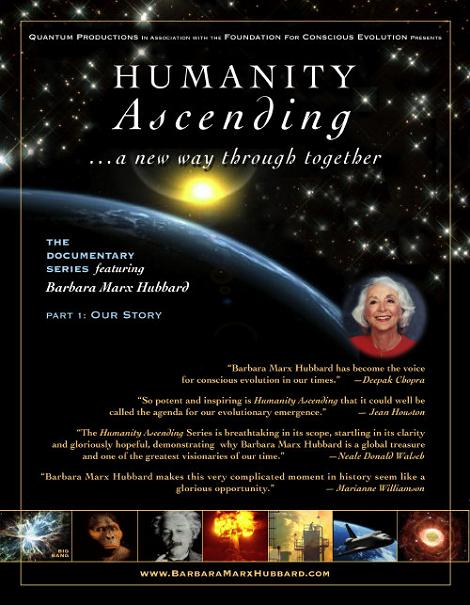
0116
Humanity Ascending – Featuring Barbara Marx Hubbard and her compelling story of human evolution from our past as hunter-gatherers to our future in space and beyond. (1hour 15 minutes)

0017
Health and Wellness – Preventive approaches to health now competing with the current over-priced, over-prescribing, interventionist medical-industrial complex costing 16% of US GDP. This is twice what other rich countries pay with no better outcomes. A look at reforms and alternative health options. (~ 27 minutes)
 Dialogues with Hazel – TV series from St. Augustine and Florida Community College Jacksonville featuring Barbara Marx Hubbard, Fritjof Capra, Frank Bracho and James Robertson.
Dialogues with Hazel – TV series from St. Augustine and Florida Community College Jacksonville featuring Barbara Marx Hubbard, Fritjof Capra, Frank Bracho and James Robertson.
 Creating Alternative Futures – A 13-part series of fast-paced conversations featuring speakers such as Alvin Toffler, John Naisbitt, Fritjo Capra, Jean Houston and Oscar Motomura aired on PBS stations, all moderated by Hazel Henderson.
Creating Alternative Futures – A 13-part series of fast-paced conversations featuring speakers such as Alvin Toffler, John Naisbitt, Fritjo Capra, Jean Houston and Oscar Motomura aired on PBS stations, all moderated by Hazel Henderson.

0016
Clean Food – Surveys the explosive growth of organic agriculture in the face of consumer fears of tainted and imported foods. Locally-grown, fresh, organic food, free of pesticides, farmers’ markets and local contract agriculture are seen as the future. (~ 27 minutes)
 Comedy – Shows and videos which allow us to laugh as we learn
Comedy – Shows and videos which allow us to laugh as we learn

0101
Architect of Corporate Responsibility – Ashoka’s Global Academy presents the story of how Alice Tepper Marlin founded the global standard SA8000 which is adopted by major corporations, labor unions and NGOs to assure workplace safety, decent wages, and children’s and workers’ rights in all supplier factories.
 GREEN ENERGY AND DESIGN – Shows and videos featuring renewable energy and other clean technologies.
GREEN ENERGY AND DESIGN – Shows and videos featuring renewable energy and other clean technologies.

0015
Transformation Of Work – Views rapid changes in workplaces, outsourcing, automation and self-employment, focusing on employee-owned companies (11,000 in the USA) and the prospects for democratizing capital-ownership. (~ 27 minutes)
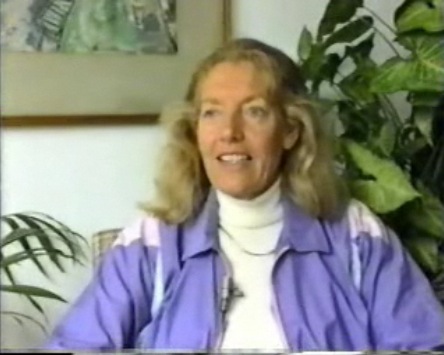 Classic Talk – Commentaries and dialogues, many with Hazel Henderson, which stand the test of time, including a rare interview with Aurelio Peccei, late founder of the Club of Rome; also Barbara Marx Hubbard, Fritjof Capra, Frank Bracho, James Robertson, Frederick Hayek and others.
Classic Talk – Commentaries and dialogues, many with Hazel Henderson, which stand the test of time, including a rare interview with Aurelio Peccei, late founder of the Club of Rome; also Barbara Marx Hubbard, Fritjof Capra, Frank Bracho, James Robertson, Frederick Hayek and others.
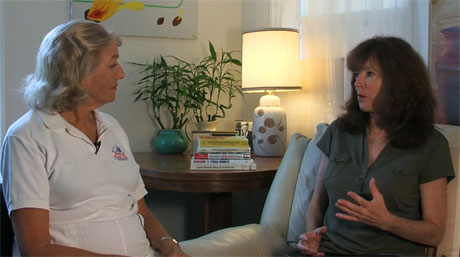
0349
Escaping the Web of Debt – interview with Ellen Brown, “Transforming Finance” — an Ethical Markets Media production © 2010

0100
Setting the Standards for the Global Economy – Ashoka’s Global Academy presents Alice Tepper Marlin’s story of how she pioneered a more socially and environmentally responsible model for business –the Council on Economic Priorities, a pioneer of social, environmental and ethical auditing of companies.

0014
Shareholder Advocacy – Interviews with activist-shareholders pushing their companies to be more socially and environmentally responsible. Corporate managers are responding as active investors join with employees, unions, environmentalists and many other stakeholders to push for higher ethical standards. (~ 27 minutes)

0268
The School Lunch Scam provided by the American News Project; Who determines what American kids eat each day? Congress and the Department of Agriculture approve what foods can (and can’t) be served through the National School Lunch Program. The competition for a piece of this $10 billion market is fierce, but espite the enormous nutritional and financial stakes at play, ANP was the only media to cover a recent panel set up to discuss the school menu. While nutritionists outnumbered the press, corporate lobbyists outnumbered everyone.

413 – “Healthy Foods, Healthy Lifestyles- Paths to Happiness” – Martin Ping
“Healthy Foods, Healthy Lifestyles: Paths to Happiness”
Martin Ping – Executive Director, Hawthorne Valley Association, Ethical Markets Transforming Finance Series 2013

0026
 Provided by www.EarthDayTV.net Focus the Nation The 2% Solution – On Jan. 30, Focus the Nation held a live, interactive webcast featuring Stanford University climate scientist Stephen Schneider, sustainability expert Hunter Lovins, green jobs pioneer Van Jones and youth climate leaders, discussing global warming solutions. They reached over a million students on one day! (~ 70 minutes)
Provided by www.EarthDayTV.net Focus the Nation The 2% Solution – On Jan. 30, Focus the Nation held a live, interactive webcast featuring Stanford University climate scientist Stephen Schneider, sustainability expert Hunter Lovins, green jobs pioneer Van Jones and youth climate leaders, discussing global warming solutions. They reached over a million students on one day! (~ 70 minutes)

0013
Renewable Energy – Renewable energy: solar, wind, biofuels, hydrogen, ocean power are the best route beyond fossil fuels to energy independence. A look at the technologies and the leaders in this “green revolution.” (~ 27 minutes)

414 – ““Financing the Green Transition to the Coming Solar Age” – Peter Lynch
“Financing the Green Transition to the Coming Solar Age”
Peter Lynch – Private Investor and Financial/Technology Advisor to Investors; former senior editor, Photovoltaic Insider Report; Ethical Markets Transforming Finance Series 2013

0012
Woman Owned Businesses – In the USA, 50% of all private companies are owned and managed by women and employ 19 million Americans. Women’s goals differ from those of men: women rate profit-maximizing below other community, family and personal values. We meet many women business leaders, bankers and entrepreneurs. (~ 27 minutes)

0011
Fair Trade – “Free trade” has turned into a free-for-all based on cutting prices, cutting corners on safety, quality and the environment – as well as outsourcing of production and jobs to lowest-wage countries. Fair trade labels on products growing to ensure consumers that small organic producers of coffee, teas, chocolate and many other foods get fair prices. (~ 27 minutes)

0048
 Up Close China – Hazel Henderson is interviewed by Cheng Yi on Taiwan’s premier weekly newsmaker show. They discuss globalization, creating more ethical business investments and new indicators such as the Calvert-Henderson Quality of Life Indicators.
Up Close China – Hazel Henderson is interviewed by Cheng Yi on Taiwan’s premier weekly newsmaker show. They discuss globalization, creating more ethical business investments and new indicators such as the Calvert-Henderson Quality of Life Indicators.

415 – “Nurturing Sustainable Local Communities Worldwide” – Interview with Steven Lovink
“Nurturing Sustainable Local Communities Worldwide” – Interview with Steven Lovink – Founder/CEO, Planet2025 Network and Power of One; Ethical Markets Transforming Finance Series 2013

0010
Investing In Your Community – Some of your safest, best investments are right outside your door! A look at successful community investing in growing, vibrant local economies, affordable housing, new small businesses and re-development. (~ 27 minutes)

416 – “Fostering Homegrown Reliable Economies” – Stuart Valentine
“Fostering Homegrown Reliable Economies”
Stuart Valentine – Principal, Centerpoint Investment Strategies, Ethical Markets Transforming Finance Series 2013

0009
Green Building and Design – The revolution in building, architecture, product design is leading to the explosive growth of energy-efficient, less polluting, safer and healthier workplaces and homes. (~ 27 minutes)

417 – “Permaculture, Eco-forests Developing Green Economies” – Terry Mock
“Permaculture, Eco-forests Developing Green Economies”
Terry Mock – Co-founder, Champion Tree Project International and the Sustainable Land Development Initiative; Ethical Markets Transforming Finance Series 2013

0147
 Vicki Robin: The Micro-economics of Caring – provided by EON: the Ecological Options Network; Vicki Robin, co-author of Your Money or Your Life, discusses the micro-microeconomics of daily living – becoming aware of what needs you have that can be satisfied with money and which require one to disassociate from being only a financial being. (11 mins)
Vicki Robin: The Micro-economics of Caring – provided by EON: the Ecological Options Network; Vicki Robin, co-author of Your Money or Your Life, discusses the micro-microeconomics of daily living – becoming aware of what needs you have that can be satisfied with money and which require one to disassociate from being only a financial being. (11 mins)

0007
Global Corporate Citizenship – More ethical “corporate citizenship” now seen as a must by many leaders and critics. Best practices of corporations in consumer and environmental protection, human and workplace rights. (~ 27 minutes)

418 – Promo – “Green Banking and Investing” – Interview with Ken La Roe
“Green Banking and Investing” – Interview with Ken La Roe – Founder, CEO and Chairman, First Green Bank, Florida; Ethical Markets Transforming Finance Series 2013

0168
Moving the Economy Transportation Choices – given for MOVING THE ECONOMY: Economic Opportunities in Sustainable Transportation, An International Conference. July 9-12, 1998, Toronto, Canada.

0006
Redefining Success – Changing scorecards of countries’ “progress” beyond money and Gross National Product (GDP) to new indicators of Quality of Life and Gross National Happiness. (~ 27 minutes)

419 – “Green Banking and Investing” – Interview with Ken La Roe
“Green Banking and Investing” – Interview with Ken La Roe – Founder, CEO and Chairman, First Green Bank, Florida; Ethical Markets Transforming Finance Series 201

0139
 Jane Goodall: Helping humans and animals live together – provided by TED.com; The legendary chimpanzee researcher Jane Goodall talks about TACARE and her other community projects which help people in booming African towns live side-by-side with threatened animals. (24 min)
Jane Goodall: Helping humans and animals live together – provided by TED.com; The legendary chimpanzee researcher Jane Goodall talks about TACARE and her other community projects which help people in booming African towns live side-by-side with threatened animals. (24 min)
Ethical Markets(SM) – is a financial lifestyle TV magazine produced by Hazel Henderson redefining success globally through a positive look at what is possible and illustrating “triple bottom line”: respecting people and the environment while earning a healthy profit.

0143
 The Shift – A movie being made by a movement provided by www.theshiftmovie.com; This movie trailer, spread virally around the internet, describes an ambitious project to showcase the millions of people from all across the world who are banding together to establish peace, sustainability and social justice as the common themes by which humanity thrives on Planet Earth. The project will show how change is happening at the most fundamental levels of our culture, and how countless people, associations and groups are leading the grass-roots movement with a swell of positive activity.
The Shift – A movie being made by a movement provided by www.theshiftmovie.com; This movie trailer, spread virally around the internet, describes an ambitious project to showcase the millions of people from all across the world who are banding together to establish peace, sustainability and social justice as the common themes by which humanity thrives on Planet Earth. The project will show how change is happening at the most fundamental levels of our culture, and how countless people, associations and groups are leading the grass-roots movement with a swell of positive activity.

0005
 Provided by www.MoneyAsDebt.net Money as Debt – This is a must see video that sparks great conversations in any group who views it.
Provided by www.MoneyAsDebt.net Money as Debt – This is a must see video that sparks great conversations in any group who views it.
Debt-gov’t, corporate, & household has reached astronomical proportions. Where does all this money come from? How could there BE that much money to lend? The answer is… there isn’t. Today, MONEY IS DEBT. If there were NO DEBT there would be NO MONEY! If this is puzzling to you, you are not alone. Very few people understand, even though all of us are effected. This fast-paced and highly entertaining animated feature explans today’s magical perverse DEBT-MONEY SYSTEM (~ 47 minutes)
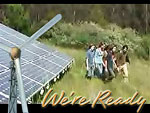
0152
We’re Ready – Provided by IONS; This One Minute Shift, produced by 13-year-old Shannon Leonard and his friends, expresses a heartfelt call from youth who are ready to live more sustainably. They pointedly ask if we’re ready to do the same. (@1 min)

420 – Transition to the Green Economy – Michael Grunwald
“Transition to the Green Economy” – Interview with Michael Grunwald – TIME, Time.com, Senior National Correspondent; author, The New New Deal (2012); Ethical Markets Transforming Finance Series 2013
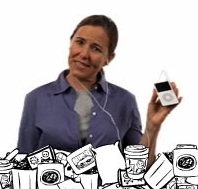
0102
 The Story of Stuff – provided by The Story of Stuff, Annie Leonard looks at the underside of production and consumption patterns, exposing the connections between a huge number of environmental and social issues. It’ll teach you something, make you laugh, and it just may change the way you look at all the stuff in your life forever. (20 min)
The Story of Stuff – provided by The Story of Stuff, Annie Leonard looks at the underside of production and consumption patterns, exposing the connections between a huge number of environmental and social issues. It’ll teach you something, make you laugh, and it just may change the way you look at all the stuff in your life forever. (20 min)

0142
 Values for Water. World Bank – provided by Planet2025; Week 8 of the Water Tribune in Zaragoza, Spain, sponsored by the World Bank, was kicked-off with these three videos used to stimulate discussions. Hazel Henderson is a featured speaker. Each week of the water expo, participants from around the world joined in debates and dialogues addressing water concerns affecting us globally. (26 min)
Values for Water. World Bank – provided by Planet2025; Week 8 of the Water Tribune in Zaragoza, Spain, sponsored by the World Bank, was kicked-off with these three videos used to stimulate discussions. Hazel Henderson is a featured speaker. Each week of the water expo, participants from around the world joined in debates and dialogues addressing water concerns affecting us globally. (26 min)

0003
Growing the Green Economy – Long dismissed by mainstream media, visionary entrepreneurs, environmentalists, scientist and professionals have been creating an economy that thrives in harmony with the earth and social well-being. With insight and clarity, this show looks at the green economy that already exists and is growing by leaps and bounds! (~ 54 minutes)

0066
Strategies for Sustainable Economies – Hazel
Henderson in conversation with James Robertson, British author of
Power, Money and Sex and The Future of Work, about globalization,
out-sourcing, automation and new forms of development.

0068
The Money Fix – Provided by The Money Fix, Hazel Henderson discusses the current ineffective methods of measuring true wealth and the inappropriate use of money, giving examples like the false Nobel Prize in Economics. (~ 9 minutes)

0065
Redefining Cultural Values – Hazel
Henderson and Frank Bracho, former Venezuelan Ambassador to India,
author of Globalization and Petroleum: Salvation or Perdition, discuss
the importance of culture in development.

0064
Ecoliteracy and System Thinking – Hazel Henderson and Fritjof Capra, author of The Web of Life, examine the educational movement to teach “ecoliteracy,” an understanding of ecosystems as humanity’s life-support system, and how this leads to systems thinking.

0063
Empowering Women’s Visions – Hazel Henderson and Barbara Marx Hubbard, author of The Hunger of Eve, discuss women as visionary leaders and why they are important for our changing world.

0062
Seven Steps to a New Millennium – Hazel Henderson and Barbara Marx Hubbard, author of Human Social Potential, discuss possibilities for humans as we extend our space program.
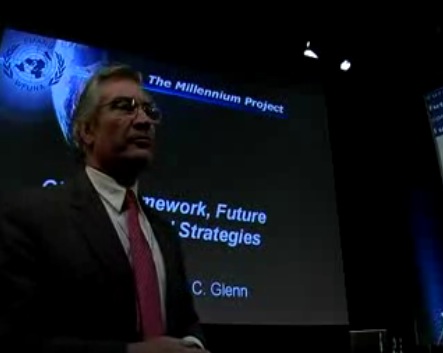
0217
Prof. Jerome Glenn: Global Framework, Future Prospects and Strategies provided by the European Futurist Club; Glenn discusses edgier options for preventing global climate change .(~32 min)
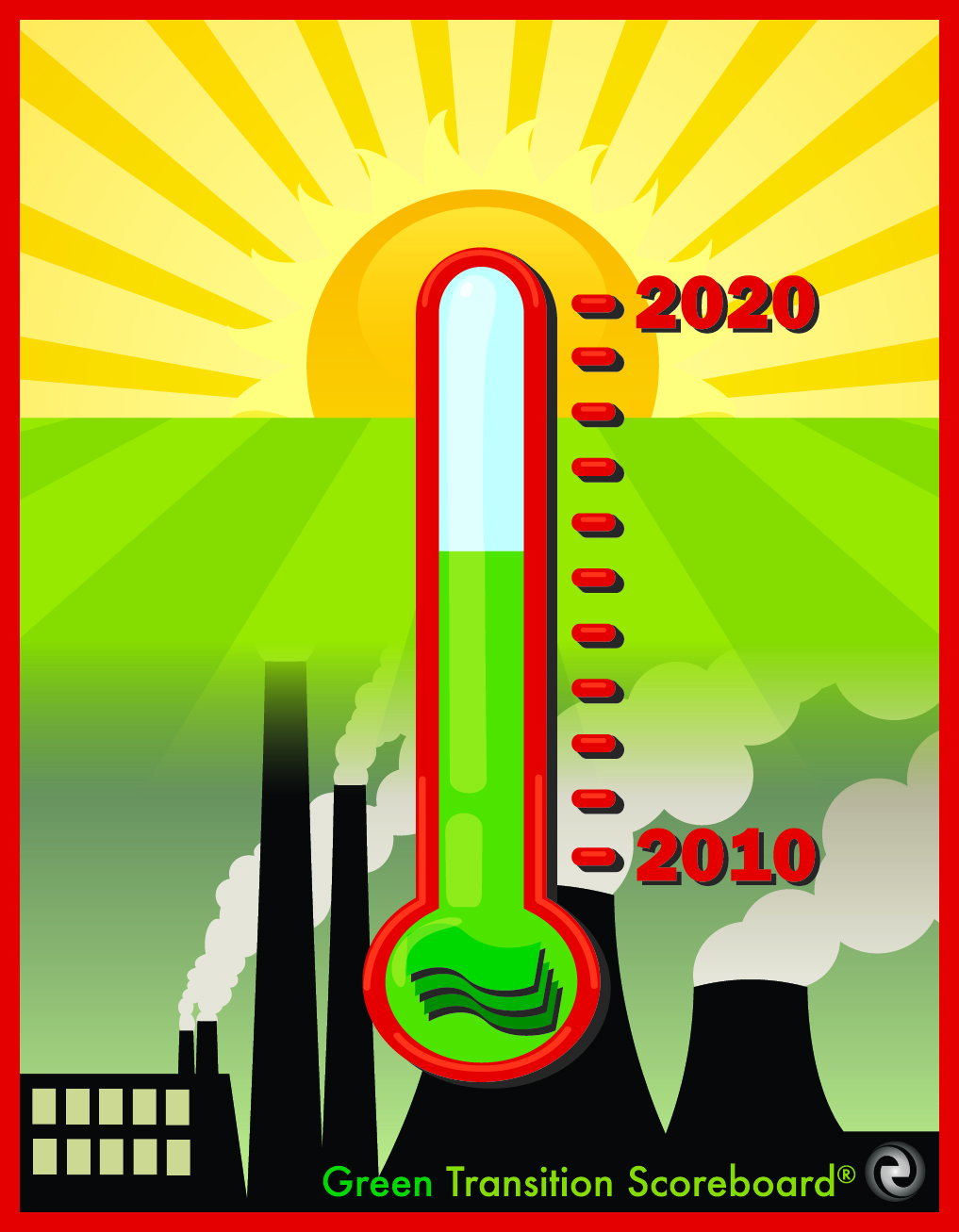
0100
Green Transition Scoreboard(r) Explained – scripted and narrated by Hazel
Henderson, Ethical Markets Media (c) 2014
Dialogues with Hazel Henderson – TV series from St. Augustine and Florida Community College Jacksonville.

0047
Ashok Khosla – Ashok Khosla and Hazel Henderson discuss the debate between the North and the South in how to protect the environment, grow the economy and the very meaning of sustainable development.
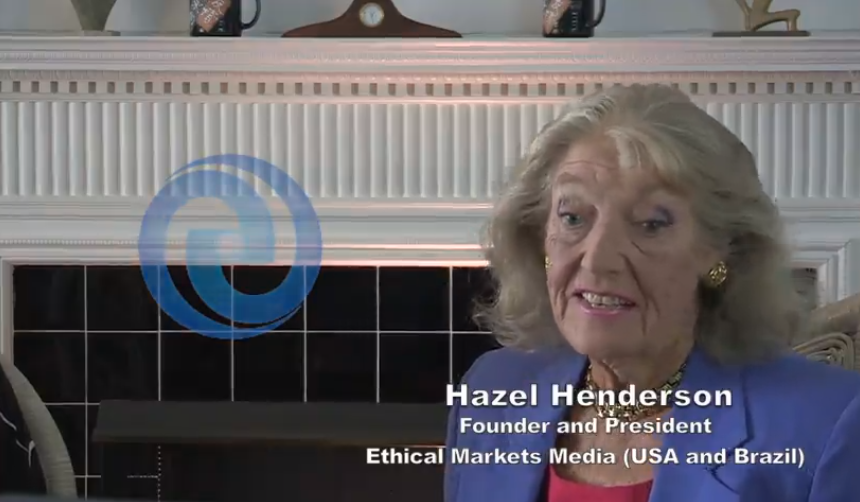
425 – “How Adam Smith and Charles Darwin Got Hijacked” – Discussion with Kim Ann
“How Adam Smith and Charles Darwin Got Hijacked” – Discussion with Kim Ann
Curtin, author, CEO, The Wall Street Coach, and Hazel Henderson, president,
Ethical Markets Media; Ethical Markets Transforming Finance Series 2014
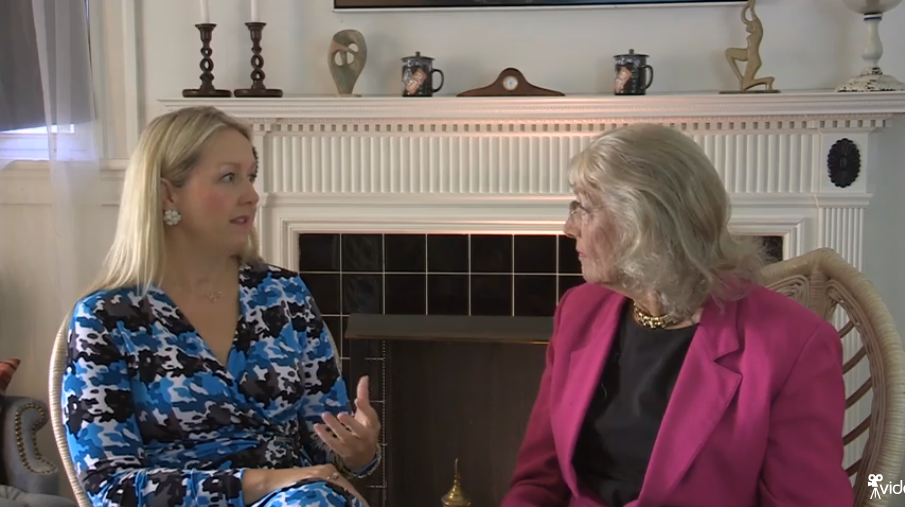
426 – “Transforming Wall Street” – Discussion with Kim Ann Curtin, author, CEO,
“Transforming Wall Street” – Discussion with Kim Ann Curtin, author, CEO,
The Wall Street Coach, and Hazel Henderson, president, Ethical Markets
Media; Ethical Markets Transforming Finance Series 2014

0046
Eckart Wintzen – Eckart Wintzen and Hazel Henderson discuss greening the global economy as businesses use techniques such as green auditing.
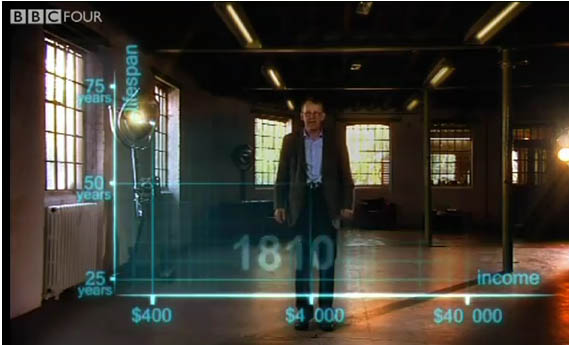
0357
Four Minutes on Human Development — provided by the BBC; Hans Rosling explores stats in an unusual but fascinating way that allows the viewer to watch 200 countries develop over the last 200 years in just four minutes. He takes viewers through the Industrial Revolution, Spanish flu, two world wars and the HIV epidemic in Africa as he covers life expectancy and wealth using 120,00 numbers in his ongoing “Joy of Stats” project. The experience begins in 1810 and shows viewers exactly how different the world is compared to what we imagine it to be. (John Size, Dailybrew.com)

426 – Willow School Founder Shares a Vision – Keynote presentation by Gretchen Johnson Biedron
Willow School Founder Shares a Vision – Keynote presentation by Gretchen
Johnson Biedron, founder of the Willow School in New Jersey, to the Ethical
Markets “Finding Ethical Alpha” Conference, May 2014.

0045
William Irwin Thompson – The Changing American Dream with William Irwin Thompson and Hazel Henderson.

0044
Elisabet Sahtouris Part 3 – Elisabet Sahtouris, evolution biologist, author of GAIA: The Human Journey from Chaos to Cosmos, Continues the conversation with Hazel Henderson discussing the planet as a living system as in the Gaia Theory: the whole biosphere is one interactive living system of which humans are a part.
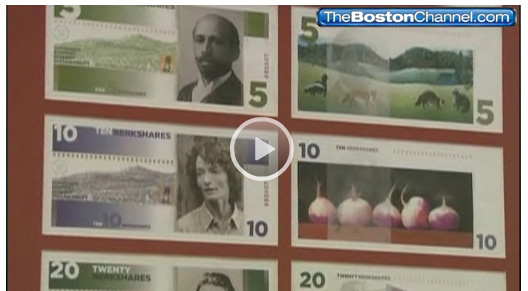
0358
Berkshares — provided by WCBV TV Boston; BerkShares board member, Will Conklin, describes how when money is spent at local stores the multiplier effect on the local economy is much deeper and wider than money spent at chains or on the internet. The film visits Berkshire Bank and Tom’s Toys to explore the topic.

0043
Elisabet Sahtouris Part 2 – Elisabet
Sahtouris, evolution biologist, author of GAIA: The Human Journey from
Chaos to Cosmos, Continues the conversation with Hazel Henderson
discussing the planet as a living system as in the Gaia Theory: the
whole biosphere is one interactive living system of which humans are a
part.

785 – Reforming Capital Markets and Corporate Governance
In this program, Hazel Henderson discusses with Linda Crompton, MA, MBA, pioneering Canadian bank president and mutual fund innovator, what reforms still are needed in capital markets. They review the challenges and progress over the past decades as ethical, green investing began to go mainstream which now in the USA alone comprises $6.57 trillion or 18% of total investments. Future expansion is expected as accounting reforms expose real risks such as water shortages and climate change excluded in traditional financial models

0042
Elisabet Sahtouris Part 1 – Elisabet Sahtouris, evolution biologist, author of GAIA: The Human Journey from Chaos to Cosmos, and Hazel Henderson discuss the planet as a living system as in the Gaia Theory: the whole biosphere is one interactive living system of which humans are a part.
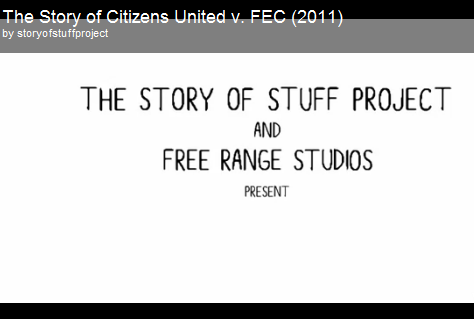
0360
The Story of Citizens United v. FEC — provided by StoryofStuff.org; Annie Leonard brings her unique insight to the world of corporate influence on American politics.

0041
Peter Russell Part 2 – Hazel
Henderson and U.K. physicist Peter Russell, author of The White Hole in
Time, continue discussing future trends in human consciousness and how
these will transform human societies.

795 – The Future of Education
In this program, Hazel Henderson discusses with Dr. William Abare, President, Flagler College, how education is changing. They explore the growing challenges to education: costs rising faster than inflation; students bearing $1.2 trillion in loans while facing disruptive technological changes and job markets shifting globally. Traditional colleges are challenged by massive open online courses (MOOCs) such as Khan Academy, backed by Bill Gates, and other start-ups now funded by Silicon Valley capitalists, with millions of students learning free online. How can the benefits of campus-based education be extended to include more student and help counter growing inequality?

789 – Reforming Capital Markets and Corporate Governance
In this program, Hazel Henderson discusses with Linda Crompton, MA, MBA, pioneering Canadian bank president and mutual fund innovator, what reforms still are needed in capital markets. They review the challenges and progress over the past decades as ethical, green investing began to go mainstream which now in the USA alone comprises $6.57 trillion or 18% of total investments. Future expansion is expected as accounting reforms expose real risks such as water shortages and climate change excluded in traditional financial models.

0040
Peter Russell Part 1 – Hazel Henderson and U.K. physicist Peter Russell, author of The White Hole in Time, discuss future trends in human consciousness and how these will transform human societies.

790 – The Future of Education
In this program, Hazel Henderson discusses with Dr. William Abare, President, Flagler College, how education is changing. They explore the growing challenges to education: costs rising faster than inflation; students bearing $1.2 trillion in loans while facing disruptive technological changes and job markets shifting globally. Traditional colleges are challenged by massive open online courses (MOOCs) such as Khan Academy, backed by Bill Gates, and other start-ups now funded by Silicon Valley capitalists, with millions of students learning free online. How can the benefits of campus-based education be extended to include more student and help counter growing inequality?
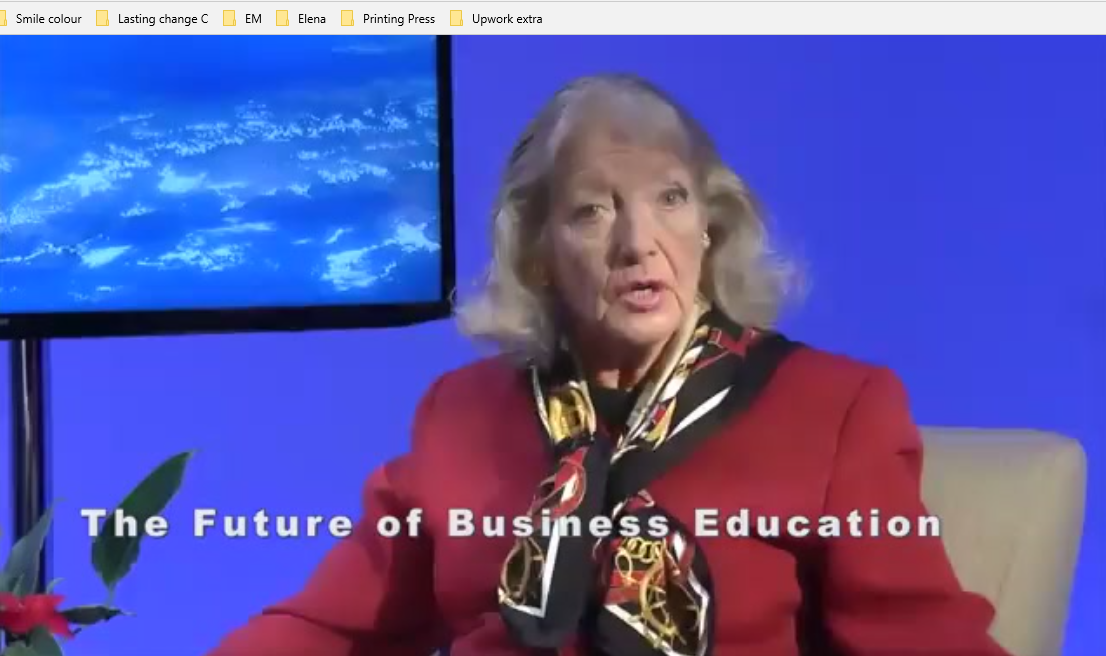
791 – The Future of Business Education
In this program, Hazel Henderson explores innovative courses with Dr. Allison Roberts, Chair of the Business Administration Department, Flagler College. They critique the values underlying much traditional business education which still teach with obsolete textbooks and assumptions that self-interest competition is “human nature”. Old courses still assume the impacts of business activities harming others and their environmental costs can be “externalized” from company balance sheets. Dr. Roberts, whose doctorate is in health and labor economics, has designed a more scientific curriculum, taking account of social and technological changes that have changed the global economy. Dr. Roberts teaches broader analyses and strategies for business success and new scorecards so that her students can prosper in the 21st century while contributing to more sustainable societies

0149
 Naturally Successful (excepts) – provided by Natural Logic and Arnold Creek Video; A new type of entrepreneur is changing industries and the world. Making a profit is essential, but success includes social, environmental and economic impacts. The film features interviews with business leaders who offer insights on building values-driven businesses, seizing opportunities in new and existing markets, and embracing a new type of capitalism. (2.5 mins)
Naturally Successful (excepts) – provided by Natural Logic and Arnold Creek Video; A new type of entrepreneur is changing industries and the world. Making a profit is essential, but success includes social, environmental and economic impacts. The film features interviews with business leaders who offer insights on building values-driven businesses, seizing opportunities in new and existing markets, and embracing a new type of capitalism. (2.5 mins)
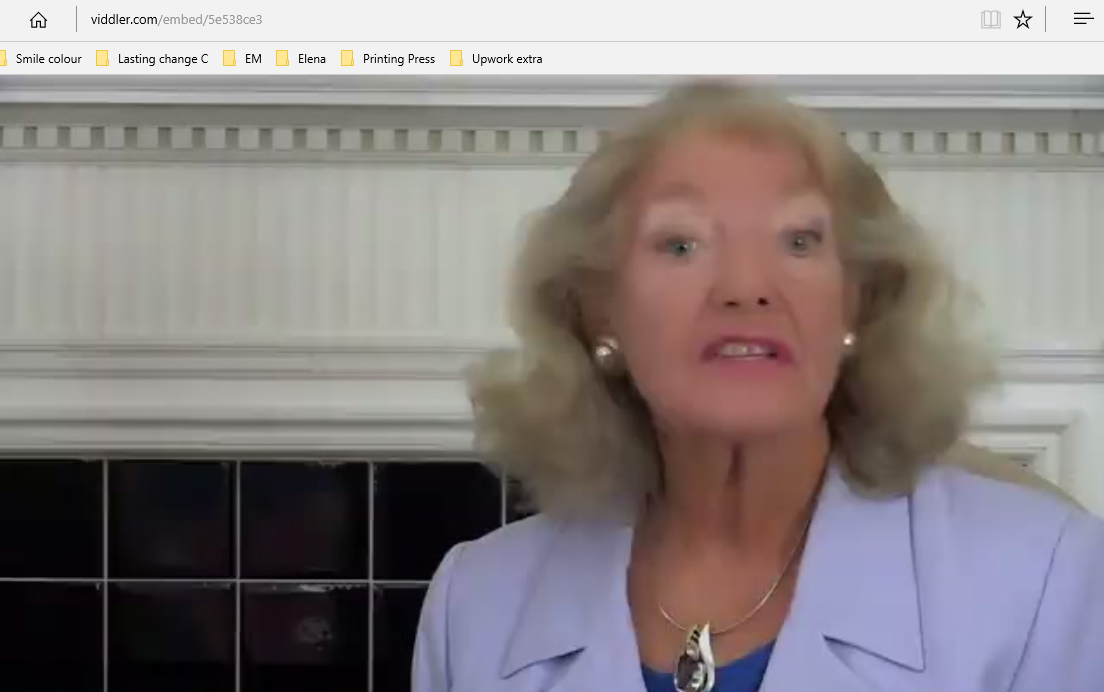
792 – Reforming Business Education for Sustainable Economies
– In this program, Hazel Henderson discusses with Linda Crompton, MA, MBA, pioneering Canadian bank president and mutual fund innovator, how business courses need to catch up with changes in today’s finance and business. They review the urgent need to reform curricula at business schools in North America and Europe. Many still are teaching from obsolete textbooks with faulty assumptions that still permit companies, financiers and governments to “externalize” the social and environmental impacts from their balance sheets and pass on the costs to taxpayers, citizens and the environment.

720 – Asia’s Challenges to Western Economies
In this program, Hazel Henderson and Asian Markets Sustainability Analyst Matthew McGarvey, both China experts, review the new challenges China poses to Western economies as well as from other emerging economies in Asia. Western economists misunderstand the restructuring in China from exports toward domestic goals and shifting from polluting coal to wind, solar and the “circular economy” and their “Green GDP.” The new Asian Infrastructure Investment Bank (AIIG) led by China has attracted members like Britain and other European countries, as well as the IMF. Yet, the US Congress refused to join and is now out in the cold. The rush to new mega-trade deals in Asia and the need for new rules and metrics are explored.

794 – Transitioning Economies Towards New Values
In this program, Hazel Henderson and Asian Markets Sustainability Analyst Matthew McGarvey, who has lived in China, Vietnam and regularly visits Asia, discuss trends toward new values beyond Western GDP-measured economic growth. Asian economics’ models tend toward the Chinese view that “markets are good servants but bad masters.” Government rule-setting and oversight are favored and often authoritarian. Matt McGarvey recounts his personal journey from growing up in America’s heartland to learning Chinese and working in Beijing, and his experiences in Vietnam and other Asian countries.

793 – Artificial Intelligence: What Happens As Machines Take Over?
In this program, Hazel Henderson and NASA Chief Scientist Dennis Bushnell discuss the new alarms raised by Bill Gates, Google’s Eric Schmidt, Space-Ex and Tesla’s founder Elon Musk and physicist Stephen Hawking that intelligent machines like IBM’s Watson may soon outsmart humans. These computer pioneers believe this could pose existential danger to human civilization – because they may not share human values and may cause us great harm. Bushnell cites all the areas where computers are already smarter and more efficient than humans: in law, medicine, accounting and will be needed in NASA’s space program. Henderson worries about the societal impacts as ever more sectors of modern economies are digitized, now displacing white collar jobs beyond earlier manufacturing automation since the 1960s. While futurists envisioned “leisure societies,” shorter work weeks, guaranteed basic incomes and flowering of culture, art and human potentials – what we got was unemployment, stagnant wages and longer work hours.

788 – Robots Taking Over: What Will Humans Do?
In this program, Hazel Henderson and NASA Chief Scientist Dennis Bushnell explore the advance of automation as ever more sectors of industrial societies are digitized: from manufacturing to retailing, accounting, healthcare, education, legal services and even finance. Driverless vehicles will end jobs in trucking, taxis, which offer millions of entry-level opportunities. Fly-by-wire airplanes have caused the deskilling of pilots, some of whom have been confused when computerized navigation systems have failed – causing crashes. Can computerized systems be programmed with human values: empathy, compassion and ethics? Can a driverless car pass an ethical test of judgment: swerving to avoid hitting a group of people at the expense of colliding with a single person? Bushnell points out how much more efficient computers are at many tasks than humans. Henderson looks at the macro-effects: how can economies maintain aggregate demand to buy all the new productivity’s goods and services? How can people obtain purchasing power if not from jobs? They discuss alternatives emerging: worker-owned companies, cooperative enterprises and guaranteed basic incomes now enacted in Brazil, Mexico and proposed in Switzerland, Europe and the USA.
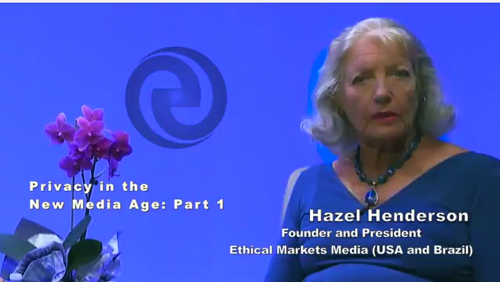
786 – Privacy in the New Media Age: Part I
– In this program, Hazel Henderson explores with law professor Jon L. Mills, former speaker in Florida’s House of Representatives, his current book, Privacy in the New Media Age. The Internet, social media, blogs, “citizen-journalists” and global news distribution pose thorny issues in all countries. While the USA favors free speech over individual rights to privacy, European countries are protecting people’s “right to be left alone” and the deletion of old records of individual behavior which may jeopardize their future employment. While Facebook and Twitter facilitated the grassroots protests and rebellions of the “Arab Spring,” these social media also helped police to track down the dissidents and their prosecution. Prof. Mills points out that technological innovations always outrun the pace of law and public responses. Different rules apply in many countries and global agreements may take decades.

787 – Privacy in the New Media Age Versus the First Amendment: Part II
– In this program, Hazel Henderson continues discussing with Professor Jon L. Mills his current book, Privacy in the New Media Age. The conversation focuses on the USA and how the Constitution favors free speech and press in the First Amendment over individual rights to privacy. Mills cites many examples of how individuals are harmed in today’s social media, by false statements by bloggers, ubiquitous cameras in public places, tracking individuals’ movements via their cellphones and GPS. They explore data-collecting by government and by corporations selling users’ personal data to advertisers, as well as snooping by drones. Again, these new technologies and media have outrun the law and public awareness and in some cases even dubious rulings by the Supreme Court.

0134
 Hans Rosling – Debunking third-world myths with the best stats you’ve ever seen Provided byTED.com; With the drama and urgency of a sportscaster, statistics guru Hans Rosling demonstrates that most of the third world is on a trajectory toward health and prosperity, and many countries are moving twice as fast as the west did. (20 mins)
Hans Rosling – Debunking third-world myths with the best stats you’ve ever seen Provided byTED.com; With the drama and urgency of a sportscaster, statistics guru Hans Rosling demonstrates that most of the third world is on a trajectory toward health and prosperity, and many countries are moving twice as fast as the west did. (20 mins)

Rising Sea Levels Worldwide Part 1 – John Englander 796
In this program Hazel Henderson discusses with John Englander, geologist and oceans expert, author of Rising Tide on Main Street, the steady rise of global oceans due to global atmospheric levels of carbon dioxide and other greenhouse gases. The Earth’s temperature continues rising as fossil fuels are burned, oceans absorb additional CO2, glaciers and ice sheets at the planet’s poles are melting. Englander studies coastlines and show visual evidence of the effects on the World’s 20 most vulnerable cities: Boston, New York, Washington DC, Seattle, San Diego, as well as Shanghai, London, Bangkok and low-lying countries Holland, the Philippines and many small island sates. In some areas, land is also sinking, and in others tectonic plates cause the land under, for example Los Angeles, to rise. Since 2015, 195 countries have agreed to address these largely human-caused effects with transition management strategies: investments in adaptation, sea walls, more and higher levees, relocation of humans settlements and shifting to renewable energy. Timeframes for action are reviewed. Transition management begins with realistic views of global change. Ethical Markets Transforming Finance Series, @2015

Rising Sea Levels Worldwide Part 2 – John Englander 797
In this program, Hazel Henderson discusses with John Englander, geologist and oceans expert, author of Rising Tide on Main Street, all the sensible, realistic ways that humans can practice transition management: by mitigating and adapting to rising sea levels. The world’s oceans will continue their steady rise – even if fossil fuel burning were to cease immediately. The long-term processes set in motion by rising global temperatures, melting glaciers and polar ice sheets are altering risk-analyses models in finance, insurance and business. Transition management strategies and options are discussed, from changing real estate values; building codes; reinforcing urban infrastructure; siting of essential transport and communications networks, as well as how investments will be affected and where new opportunities lie in shifting beyond fossil fuels to low-carbon, cleaner green economies. Ethical Markets Transforming Finance Series, @2015

Common Good Capitalism – Terry Mollner 798
In this program, Hazel Henderson discusses transition management strategies and the likely next stage of capitalism with Terry Mollner, author of Common Good Capitalism: It’s Next! and board member of Ben and Jerry’s ice cream, now owned by global food giant Unilever. Terry describes the saga of this negotiation with Ben and Jerry’s shareholders, their effort to remain independent and how their social mission was recognized and began to change Unilever. Terry points to the current wave of mega-mergers in our global economy, where brands in food, air travel, communications and many other sectors end up cooperating as duopolies. In this world beyond competition companies can reach a new level: changing their goals and business models so as to place top priority on cooperatively serving the common good with competitive profit-seeking taking second place. How to square this with anti-trust conventions will be key. These startling views will be hotly debated as human populations and economies learn transition management strategies as tools to develop further on our small finite planet. Ethical Markets Transforming Finance Series, @2015

Competition, Creativity and Cooperation – Terry Mollner 799
In this program, Hazel Henderson with Terry Mollner, author of Common Good Capitalism: It’s Next! examine his hopeful view of transition management. Mollner explains how capitalism can evolve from today’s global completion for resources and markets and the toll this takes on our societies and planetary ecosystems. Competition and human creativity have brought us to this stage. Both agree on today’s wider perception, scientific discoveries, new communications tools, satellites observing our effects on the Earth which make it evident that cooperation must now be the framework for all our actions. This is in line with Charles Darwin’s view that humanity’s success in evolving for millennia is based on our genius for cooperating. Nature’s transition management is driven by adaptation to environmental stresses. Darwin’s conviction saw our further development would lead to more altruism as we recognize our inter-dependence on each other and all lifeforms on our planetary home. Ethical Markets Transforming Finance Series, @2015

Global system Change Part 1 – Frank Dixon 800
In this program, Hazel Henderson discusses a range of global challenges and transition management strategies with Frank Dixon (Harvard MBA), former head of global research with the famed, pioneering social auditing firm Innovest. They discuss the ways in which global geopolitics is evolving in response to the systemic changes to our planet’s ecosystems due to human activities. As water shortages, drought, floods and climate disruption effect more countries and populations, decision-makers in business government and civic society are seeing that all these problems are inter-linked. Frank Dixon’s book, Global System Change, maps these global issues and connects the dots. At the same time, Henderson points to the same new awareness by over 190 member countries of the United Nations in their 2015 agreement on the 17 issues addressed in their Sustainable Development Goals (SDGs). There is now evidence that humans are accepting responsibility for the changes created by unsustainable industrial development and moving toward integrated policies. These realistic approaches to transition management can lead to cleaner, healthier, more equitable societies on which our survival may depend. Ethical Markets Transforming Finance Series, @2015

Achieving Global Sustainability and Real Prosperity Part 2 – Frank Dixon 801
In this program, Hazel Henderson discusses with Frank Dixon, MBA, author of Global System Change, the massive transition now underway to innovate and build societies powered by renewable energy and resources. All are based on more cooperative sharing models. This transition management is driven by new paradigms beyond traditional economics which are multi-disciplinary. They are based on new understanding of human behavior and the integrated science of Earth systems with information from 120 orbiting observation satellites. They discuss how all this new knowledge is seeping into financial models and steering investments in more sustainable production and ways of organizing human settlements and regenerating ecosystems. All these new transition management methods require redefining growth and prosperity and reshaping our political systems, mass media and lifestyles. These changes ae underway at every level from individuals and communities to nations, corporations and international organizations. Ethical Markets Transforming Finance Series, @2015
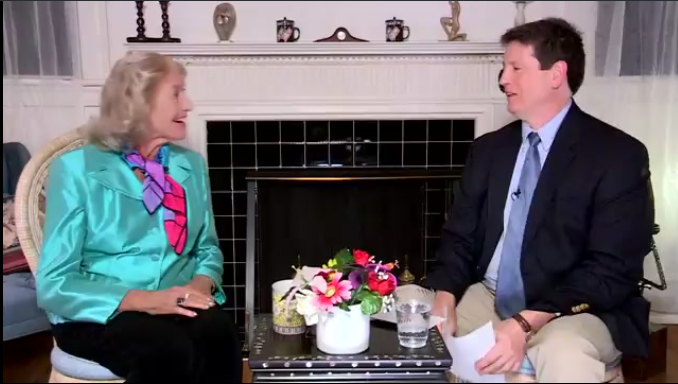
Beyond Blood Stained Gems: New Science & Standards – Frank Dixon 802
In this program, Hazel Henderson explores with Frank Dixon, MBA, author of Global System Change, the damaging effects of the global gem mining industry, now a case study in transition management. This industry has been the focus of many NGO critics since diamond mining is not only dangerous and polluting, but has helped fuel armed conflicts in many African countries. Several UN resolutions have addressed the need to stop the flow of these “blood diamonds” and the global diamond cartel has responded with the Kimberley Certification which only certifies their diamonds are “conflict-free”. This ignores the much larger problems of miners’ injuries, deaths, low wages and the pollution of water supplies and air in mining areas and communities. Beyond these hazards is the fact that this gem mining industry is now obsolete and unnecessary, since science now produces identical gems in laboratories in many countries without human and environmental damage. Thus Dixon examines Ethical Markets transition management tool: its global standard, EthicMark® GEMS which certifies only gems not mined from the Earth. Dixon asks Henderson how this better standard was developed and how it can challenge this obsolete mining industry by this market-based transition to reform: EthicMark® GEMS can create a healthier new industry and many thousands of new jobs while saving lives, human misery and the environment – an illustration of positive transition management. Ethical Markets Transforming Finance Series, @2015

Evolution of Corporate Responsibility and Accountability – Marcello Palazzi 803
In this program, Hazel Henderson discusses with Marcello Palazzi, MBA, president of the Progressio Foundation in Holland, their experiences in developing these new standards for transition management: corporate social performance and auditing over the past 30 years. Palazzi recounts his path in business and how he came to realize that standards for environmental, social responsibility were rising as the effects of corporate activities disrupted communities and ecosystems. Henderson’s experiences came from a civic organization she co-founded, Citizens for Clean Air, in the USA and how this led to her lifelong work as a science policy advisor in Washington and with the Calvert Social Investment Fund. Both had focused on aspects of transition management, developing new accounting models and metrics. These are now globally accepted by such organizations as the International Integrated Reporting Council (IIRC), the Global Reporting Initiative (GRI) and the Sustainable Accounting Standards Board (SASB). Ethical Markets Transforming Finance Series, @2015
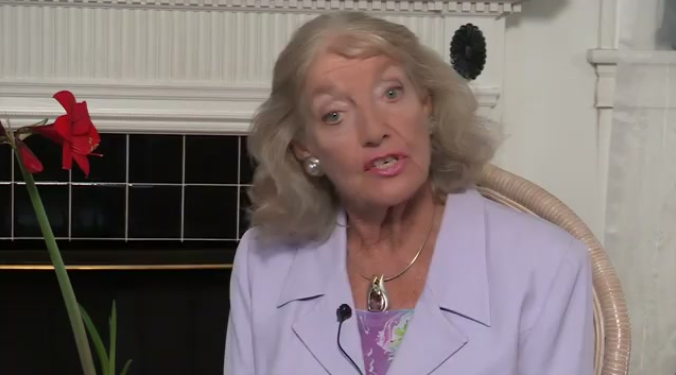
Rise of the Benefit Corporation – Marcello Palazzi 804
In this program, Hazel Henderson discusses with Marcello Palazzi, MBA, president of the Progressio Foundation in Holland, his latest work in transition management by promoting the new business charter: the Benefit Corporation, which certifies companies which focus beyond profitability to service and benefit society. This new model is now legally chartered in 30 states in the USA, also in Latin America and Europe. The founders of Certified B Corporations Jay Coen Gilbert, Andrew Kassoy and Bart Houlahan recently were awarded a coveted prized by the Aspen Institute. Palazzi and Henderson explore examples of B Corporations, which include Ethical Markets Media. This new socially responsible business model is enjoying rapid growth and includes several publicly traded corporations. These examples are further case studies in positive transition management. Ethical Markets Transforming Finance Series, @2015

Trends Toward Sustainability in Brazil – Thais Corral 805
In this program, Hazel Henderson discusses with award-winning civic leader Thais Corral, co-author of Leadership Is Global, the current crises and transitions occurring in her country Brazil. Brazil has all the resources and capital assets it needs to make the transition to sustainability, including human, social and intellectual capital with advanced infrastructure and industries, and the planet’s primary storehouse of natural capital. However, Brazil’s active democracy needs to shake off the obsolete fossil-fueled industrial model still imposed by foreign investors and traditional financial models. Thais Corral points to Brazil’s rich civic society traditions, participatory politics, its optimistic people and their open flexibility in embracing change as their best resource in transition management. This civic genius is the “software” that may prove to be Brazil’s unique export to the world and its struggle for domestic reforms offer lessons for other countries. Ethical Markets Transforming Finance Series, @2015

0133
 Alisa Miller – Why we know less than ever about the world Provided by TED.com; Alisa Miller, head of Public Radio International, talks about why — though we want to know more about the world than ever — the US media is actually showing less. Eye-opening stats and graphs. (4.5 mins)
Alisa Miller – Why we know less than ever about the world Provided by TED.com; Alisa Miller, head of Public Radio International, talks about why — though we want to know more about the world than ever — the US media is actually showing less. Eye-opening stats and graphs. (4.5 mins)

The Personal Journey of Brazilian Leader Thais Corral 806
In this program, Hazel Henderson explores with award-winning civic leader, recognized in Brazil by the UN, Thais Corral, co-author of Leadership Is Global, her personal story. Thais and her family came to Brazil from Spain, bringing their entrepreneurial skills and creativity. Thais, a lifelong learner, spent years studying in Italy, other European countries, and the USA at the University of Chicago and Harvard. She innovated 400 radio programs broadcasted to empower women across Brazil and became a co-founder of the global Women’s Environment Development Organization (WEDO) with US Congresswoman Bella Abzug. Thais then founded the learning and leadership programs at Sinal do Vale, a large estate 30 minutes from Rio De Janeiro’s mains airport, where participants learn all the tools of transition management first hand. Ethical Markets is partnering with Thais in this new educational program since Thais is a member of our global Advisory Board. Ethical Markets Transforming Finance Series, @2015

0132
 Van Jones – Green For All Provided by CNN; Van Jones comments on the Leiberman-Warner Climate Security Act and its implications for providing sustainable green jobs. (3 mins)
Van Jones – Green For All Provided by CNN; Van Jones comments on the Leiberman-Warner Climate Security Act and its implications for providing sustainable green jobs. (3 mins)

The Evolution of Sustainability Accounting – Alice Tepper Marlin 807
In this program, Hazel Henderson interviews her longtime associate Alice Tepper-Marlin, president-emeritus of SAI International and key founder of the pioneering transition management example: the socially responsible investment movement. They reminisce on the evolution of this form of accounting which screened portfolios and companies for their ethical, social and environmental performance. Tepper-Marlin founded the pioneer group, the Council on Economic Priorities (CFP) in the 1960s and Henderson became a board member, along with famed economist Robert Heilbroner, author of The Worldly Philosophers (1999). Tepper-Marlin recounts the first study by CEP of pollution in 24 pulp and paper companies and how the companies stalled at first but eventually provided data. CEP’s consumer guide, Shopping for a Better World, sold over 1 million copies and catapulted CEP into creating this new branch of accounting and securities analysis – and Tepper-Marlin into widespread media recognition. Another successful model of positive transition management! Ethical Markets Transforming Finance Series, @2015
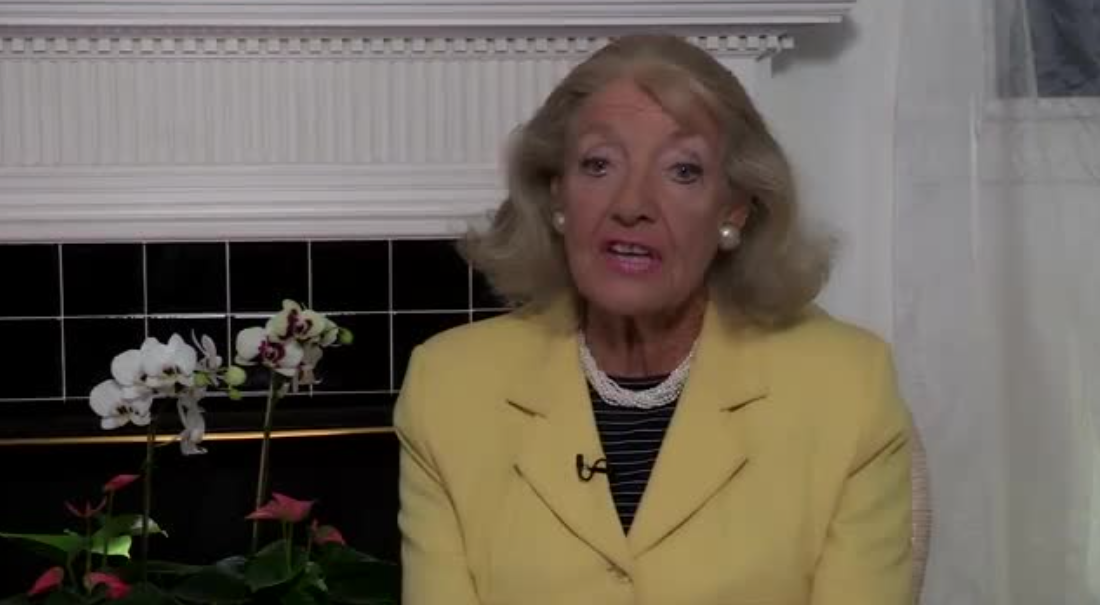
13. The Future: Toward Full-Spectrum Accounting – Alice Tepper Marlin 808
In this program, Hazel Henderson discusses with Alice Tepper-Marlin, president-emeritus of SAI International and founder of 10-Squared, the future of accounting for ethical, social and environmental performance of portfolios, companies and governments. This important tool of transition management is full-spectrum accounting, a multi-disciplinary method. This goes beyond the earlier money-based models evaluating life-cycle costs and recognizing 6 kinds of capital: financial, built facilities, intellectual, social, human and natural capital. These broader metrics are now promulgated globally by the International Integrated Reporting Council (IIRC) and the Global Reporting Initiative (GRI) and in the USA by Sustainable Accounting Standards Board (SASB), chaired by Michael Bloomberg. At last, the obsolete models in traditional economics permitting social and environmental costs to be “externalized” is exposed as irresponsible. Tepper-Marlin describes her latest venture 10-Squared, another transition management innovation and management tool for companies to achieve better social and environmental performance goals. Ethical Markets Transforming Finance Series, @2015
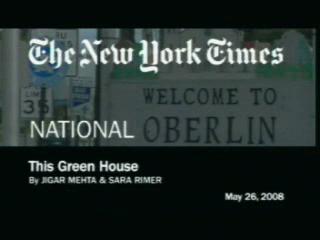
0153
 This Green House – provided by The New York Times; Spend a day at the SEED (Student Experiment in Ecological Design) house with the environmentally conscious students from Oberlin College. (6 min)
This Green House – provided by The New York Times; Spend a day at the SEED (Student Experiment in Ecological Design) house with the environmentally conscious students from Oberlin College. (6 min)
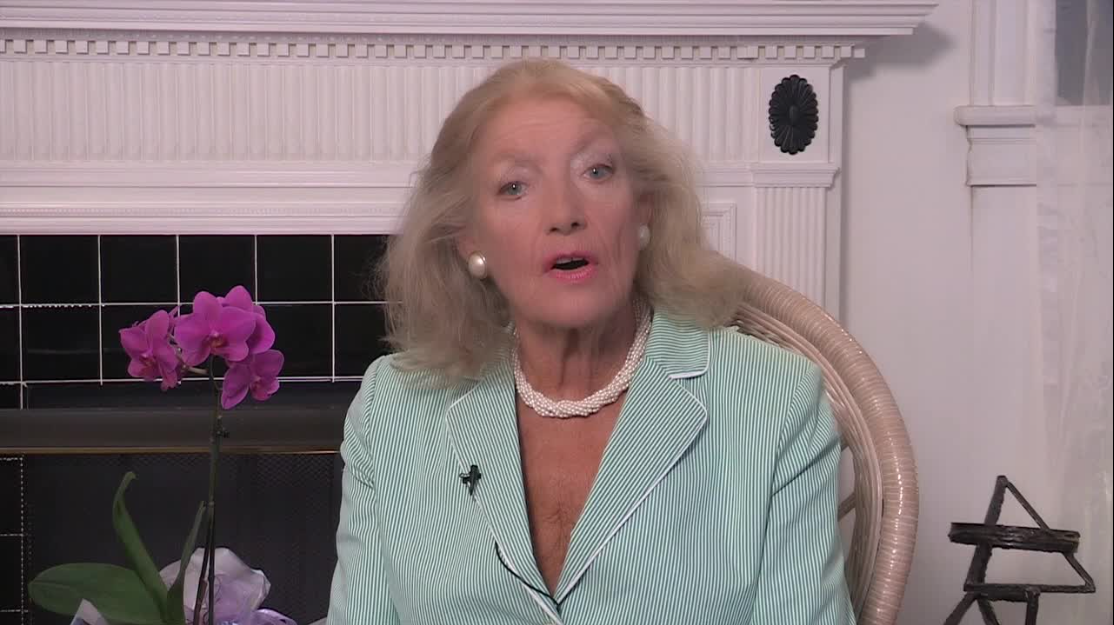
809- Responsible Investors Transforming Finance
Hazel Henderson discusses the evolution of the ethical, responsible, green investment movement with British pioneer investor Tessa Tennant. Tennant founded the first green UK mutual fund as well as the Social Investment Forum. She reviews the early obstacles, as she founded ASRIA, the first such group in Asia. An inspiring personal story! © 2016 Ethical Markets
Responsible Investors
- Classic Talk
- Comedy
- Money Innovation
- Community Development Solutions
- Creating Alternative Futures
- Dialogues with Hazel Henderson
- Ethical Markets(SM)
- GLOBAL CITIZENS : CREATIVE SOLUTIONS
- Insights from The Green
- International Financial Reform
- Mercado Ético – Ethical Markets in Brazil
- Reforming Global Finance
- REFORMING THE ECONOMY – picked by Hazel Henderson and the Ethical Markets team
- Rethinking Globalization
- Social Entreprenuer
- The Power Of Yin
- Worth Quoting TV series
- Green Energy and Technologies

